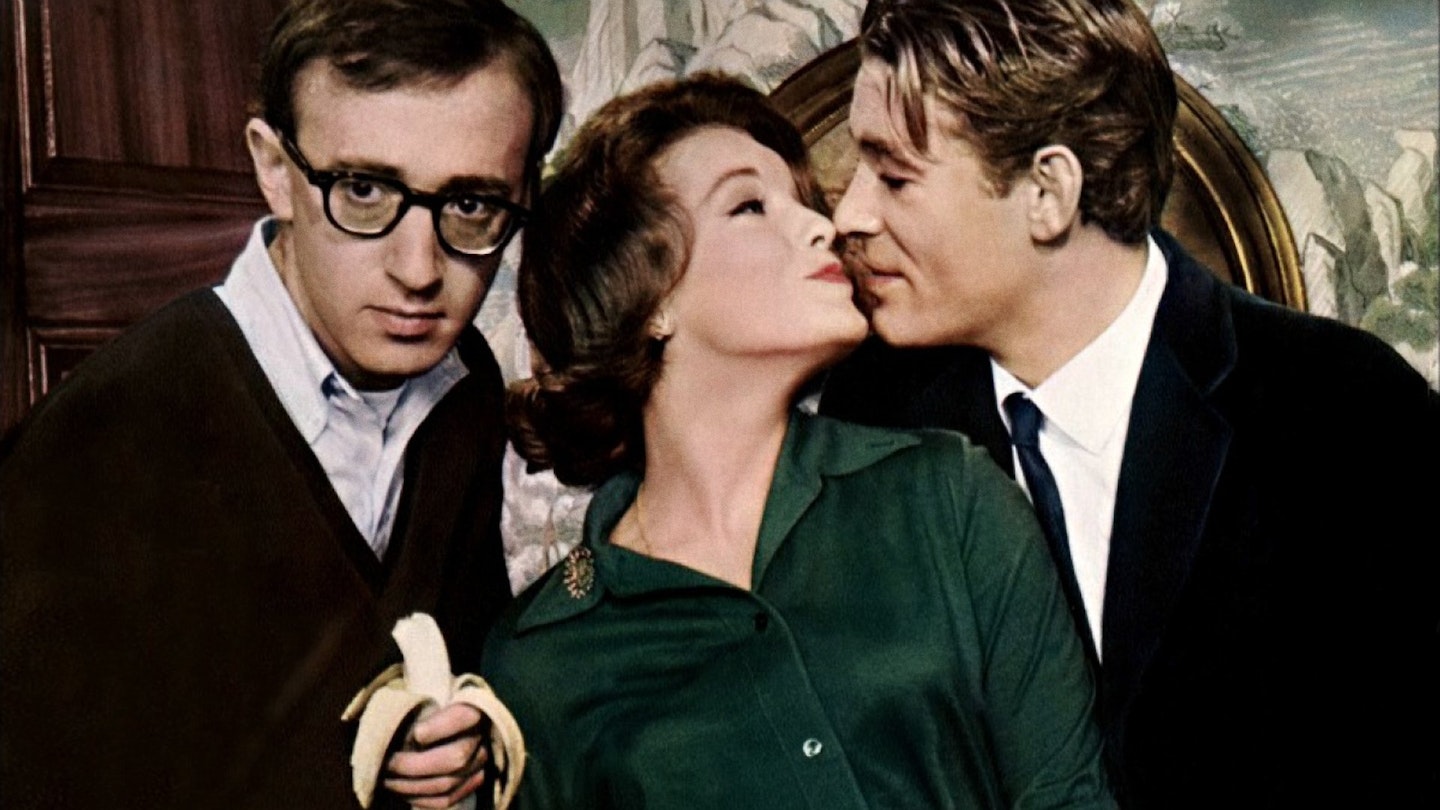When producer Charles K. Feldman purchased the rights to Hungarian Ladislas Bus-Fekete's play, Lot's Wife, he hoped to turn it into a vehicle for Cary Grant. However, Warren Beatty had assumed the lead by the time that Feldman caught Woody Allen's live act and offered him the chance to make his screenwriting debut.
Peeved by the pathetic fee, Allen also wrote himself the role of strip club wardrobe man, Victor Shakapopolis. But he made the mistake of ignoring I.A.L. Diamond's earlier attempt at an adaptation - for fear of being both swayed by its style and daunted by the expertise of Billy Wilder's longtime collaborator - and structured the scenario as a loose assemblage of gags and set-pieces, which bore more resemblance to a TV sketch show or a stand-up routine than a Hollywood narrative.
Initially, this didn't bother Feldman, as he had envisaged adopting a monochrome nouvelle vague-like approach. But Beatty (whose famous chat-up line had been commandeered for the title) disliked the anarchic style and resented Feldman's refusal to cast then-lover Leslie Caron as Carol. So, the highly unsuitable Peter O'Toole was hired as his replacement and he proceeded to ally himself with Peter Sellers in circumventing the script, which Allen had polished in conjunction with director, Clive Donner.
Keen to prove he still had it after the heart attack that had forced him to withdraw from Kiss Me, Stupid, Sellers insisted on boosting his part (which Allen had originally intended for Groucho Marx) in a series of self-indulgent improvisations that utterly altered the picture. Moreover, everyone seems to have an opinion about the much-amended ending, including Romy Schneider, who had a clause inserted into her contract blocking her marriage to a weed like Woody.
Allen managed to retain joke references to movies like I Am a Fugitive from a Chain Gang, Moulin Rouge, Lust for Life, Dr No and 8 1/2. But he followed threats to remove his name from the picture by disowning it - even though it actually explored several themes that would recur in his more mature work.
